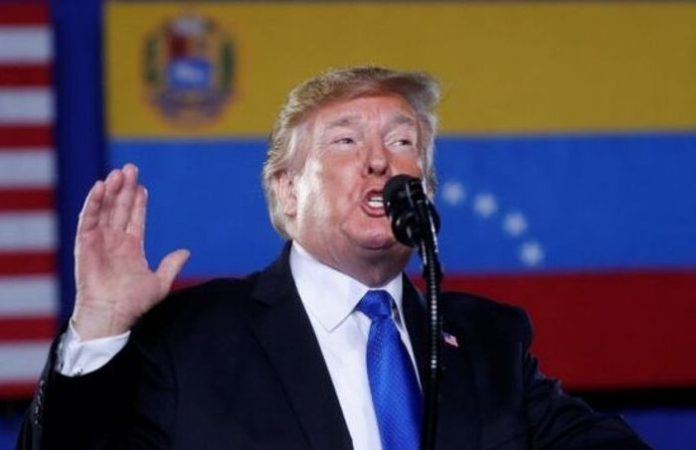
Trump advisers want Europe and Latin America to aggressively expand multilaterals that increase “political and psychological pressure” on Maduro and his assistants, according to a senior State Department official.
Its objective is to block Maduro’s key banking officials and travel within Europe and the Americas, threats in the United States that have revoked hundreds of US visas to individuals linked to Maduro and have banned US financial transactions with Venezuelan entities.
Elliott Abrams, the United States special representative for Venezuela, told McClatchy and the Miami Herald in a recent interview that the administration is pressuring the countries of the European Union and the Rio Treaty to match Washington’s unilateral threats.
“It would be great if some of the people involved in the crimes of the regime will not travel to Latin America,” Abrams said. “You have bank accounts in Latin America. So there are a variety of forms of pressure, and we think that expanding pressures to include European and Latin democracies is a useful form of political and psychological pressure on the regime. ”
The European Union recently imposed economic deaths on seven people related to the capture and murder of Rafael Acosta Arévalo, a Venezuelan military officer accused of conspiring against Maduro who died in government custody. But the Trump administration is pushing for more.
“We want to see the limitations of the EU,” Abrams said. “We would like to see wider than that.”
The United States and more than 50 countries recognized Juan Guaidó, president of the National Assembly, as the legitimate interim president of Venezuela. But efforts to force Maduro out of power through difficulties have not yet worked.
A former Trump administration official told McClatchy that the current official administration plan that the White House runs out of options to act on its own.
“To be frank, we have enabled ourselves without unilateral options, but it is also very important that we re-treat this as a multilateral issue,” said the former official. “The United States government had very hard the principle of this administration to make a coalition effort and there were results, more than 55 countries now recognize Guaidó as president.”
“It is important to step back now and let the international community catch up in many ways,” the official said.
Trump and his assistants at a meeting of world leaders at the United Nations General Assembly in New York underlined their commitment to the Venezuelan opposition, Abrams said, and tried to end all that nonsense about a policy change, a decrease in interest or pressure. “
The administration’s policy has not changed since the departure of John Bolton, the president’s third national security adviser, last month, he said.
But while 16 nations in the Western Hemisphere invoked the Rio Treaty, also known as TIAR, during the UN summit as a legal framework for regional regions, the parties must now begin the work of producing a list of restrictions in which all They can agree.
Abrams said the process could take some time.
“I think what we have to do, in fact, is to identify the names with which we will begin and with which everyone will agree. And the mechanism is important, because in several cases, there is no national legislation that recovers from economic policies in particular, ”Abrams said.
“We need to work on specific cases,” specifically, “and translate this invocation of the treaty into real names.”
With information from israelnoticias.com







